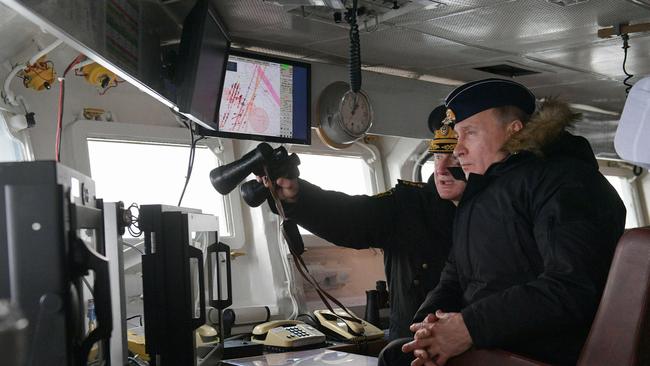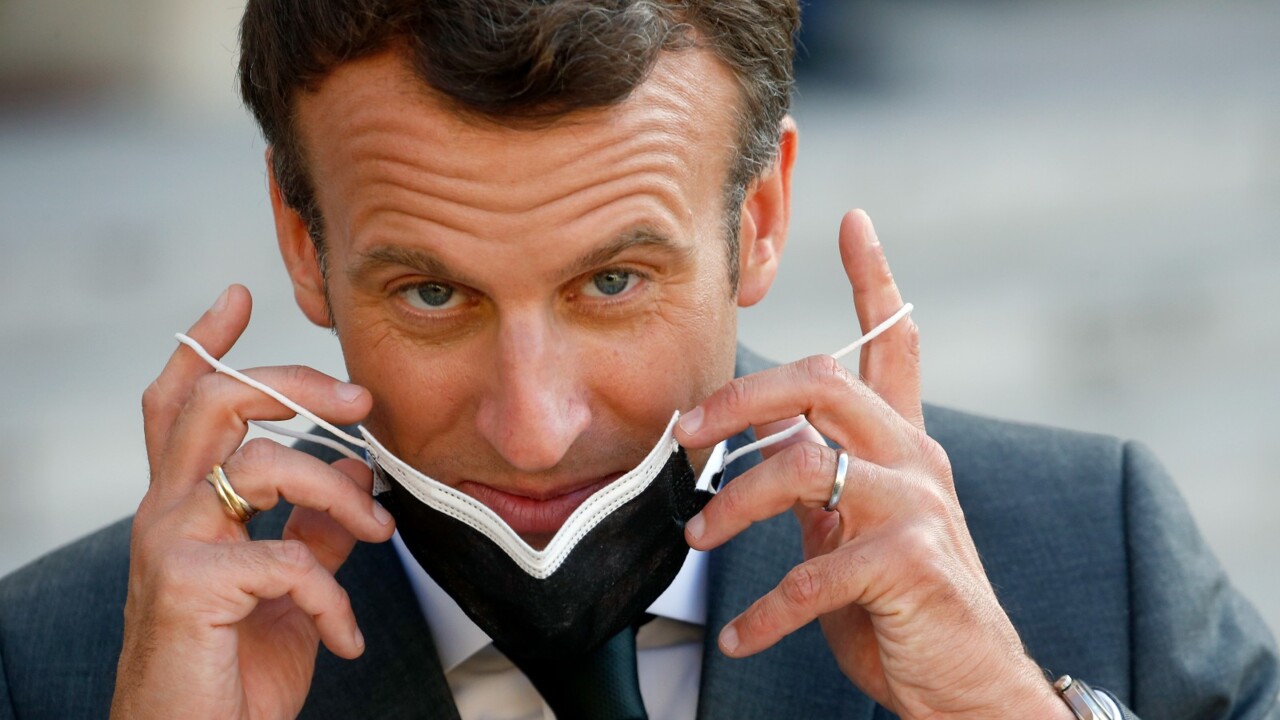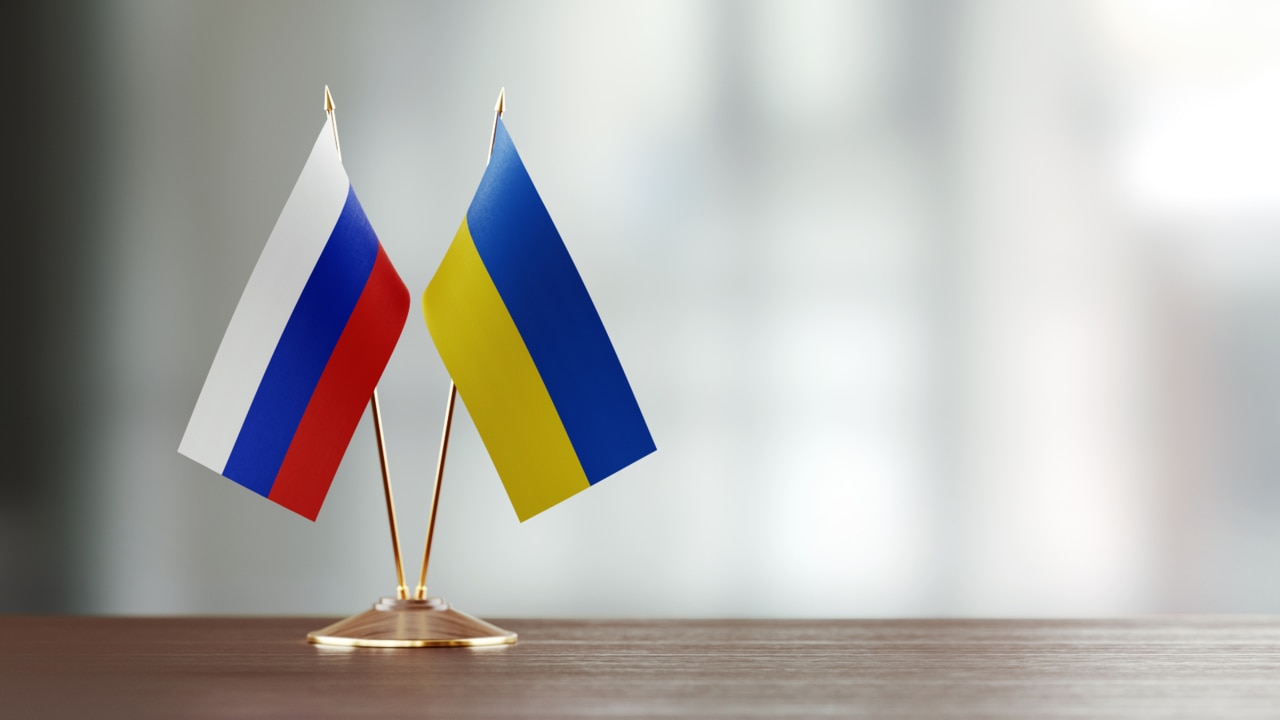A Ukraine invasion would cost Putin too much

Then Putin pointed out that Russia was large and powerful, France less so. “So you either keep talking to me like this and I will crush you, or you stop now and I will make you king of Europe.” At the subsequent press conference Sarkozy looked distinctly groggy.
I was reminded of that exchange, reported by the French journalist Nicolas Henin, when Emmanuel Macron was brushed off this week by President Putin. It was clear enough on Monday that the Kremlin leader is only just about tolerating a diplomatic discourse with the West because he thinks there’s a chance of getting what he wants — a Ukrainian government that does what he says; a Ukraine (and for that matter a Belarus) firmly outside the western orbit — without having to shed Russian blood.
We have to give him a better reason for stepping away from war and it’s this: Putin must be made to understand that invading Ukraine would be an act of fundamental self-harm for Russia, the end of its dream of being a great power with global reach.
The Sarkozy humiliation came before Russian troops moved into Georgia, before the Russian leader annexed Crimea and bombed Syria, but Putin 2007 was pretty much Putin 2022. That is, someone who doesn’t just believe in a greater Russia but has ambitions to be taken seriously as an international actor.

Russian analysis of the early ambitions of the Biden administration was that the new president would shed some of America’s baggage in order to focus on converting the geopolitical rivalry with China into a kind of co-management of the planet. Moscow is full of smart sinologists and there was due scepticism that a US-China duopoly would ever come to fruition. But the clumsy exit from Afghanistan last August suggested to the Russians that a declining America could eventually reach an understanding with Beijing. Putin’s political stargazers knew what that would entail: the marginalisation of Moscow.
So the Kremlin accelerated efforts to seal a stronger axis with Beijing, so as to reduce areas of Sino-Russian competition in central Asia, to ensure that the Arctic doesn’t become a future flashpoint between them, to agree that limits should be set on Nato in Europe and US power in the Pacific. Some western analysts read this as another omen of an impending Russian military offensive in Ukraine. China could watch Putin’s back in the UN security council and help him get around a huge wall of western sanctions should Russian tanks start to rumble.
But it was rather more than that: China and Russia have now agreed not to get in each other’s way as they exploit the vacuums that are opening up as America withdraws. Unlike China’s sprawling Belt and Road initiative, Russia’s great power operations are more about identifying and exploiting western pressure points than rewriting the rules of global trade.
In South America Russia’s interests used to replicate those of the Soviet Union, bonding with revolutionary and viscerally anti-American states: Cuba, Nicaragua, Venezuela. Putin’s Weltpolitik goes well beyond that. President Fernandez of Argentina visited Moscow recently and praised Russia as a counterweight to the United States and the IMF.

Russia is pinning its hopes on an October election victory in Brazil by the leftist contender Luiz Inacio Lula da Silva, an old acquaintance of Putin. The Kremlin calculation is that a leftward-leaning subcontinent is a natural springboard for subversion against the US.
Similarly, the string of sub-Saharan states that have experienced coups over the past 18 months can be turned against Europe. When the junta in Mali expelled the French ambassador recently the streets were bedecked with Russian as well as Malian flags. Wagner Group mercenaries have been active there as they have been in Niger, Sudan, the Central African Republic and Burkina Faso. Countries on the migration route to Europe are of particular interest to Russia.
It was of course Russia that kept its client dictator Bashar al-Assad in power in Syria; it has been a player in Libya. Putin sees this range of activity as establishing Russia’s credentials as a power to be reckoned with. It can move fast into a crisis and plant its flag, buy allegiance. It may no longer be a member of the G8 (now G7) but coup planners everywhere have Russian numbers in their address books. Not so much a Great Power, perhaps, as a Great Disruptor.
Yet Putin stands to lose even that calling card if he mounts a significant operation in Ukraine. It’s not just the sanctions, the loss of gas sales (sales to China won’t fully compensate for the loss of Nord Stream 2), the pariah status that comes with launching a European war (Ukraine borders four EU states: Poland, Hungary, Slovakia and Romania), the expense of keeping a large army out of barracks for months on end and the spilling of blood. It’s the possible humiliation of not winning quickly.
He can shrug off the entreaties of European leaders, perhaps the most enjoyable task for him in this ante-bellum phase, but if he gets bogged down in Ukrainian mud he will have gambled away any hope of being taken seriously. Sarkozy might yet end up having the last laugh.



Back in 2007 the French president Nicolas Sarkozy was dealt the diplomatic equivalent of a technical knockout by Vladimir Putin. At a G8 encounter Sarko relayed with brio a long list of complaints to the Russian leader: the hunting down of Chechen dissidents, the murder of journalist Anna Politkovskaya, the persecution of the gay community. It was met with cold silence.